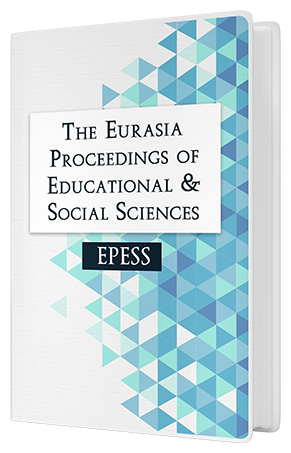Virtual Museum Experiences of Social Studies Prospective Teachers
Keywords:
Social studies prospective teachers, Virtual museum, informal learningAbstract
This study aimed to determine the views of social studies prospective teachers about virtual museums. The research was designed according to the phenomenology pattern, which is one of the qualitative research designs. The study group was determined using the criterion sampling method, which is one of the purposeful sampling methods. The study participants consisted of 30 prospective teachers who took media literacy course in the fourth year of the social studies teaching undergraduate program. The research data were collected by employing the interview method. An open-ended interview form was used to collect the data. In preparing the interview form, questions were formed in parallel with the research subject by the researcher, and the questions were finalized by receiving expert opinions. The participants visited a virtual museum for the research and were asked to answer interview questions about the visit. The data obtained from the research were analyzed with the descriptive analysis technique. It was concluded that the participants mostly answered yes to the question of whether virtual museums could be used in social studies education. The reasons they stated for their positive answers were that it attracted the attention of students, increased permanent learning, improved spatial perception skills and the perception of historical space. For the question of which historical values the virtual museums caused students to gain, the participants mostly replied as the development of national consciousness, love of homeland, nation, flag, respect, freedom, and solidarity values. For the question of what experiences the participants acquired during their virtual museum visits, they mostly stated that it contributed to the development of historical empathy skills, improved permanent learning, raised awareness, and increased sensitivity.Downloads
Published
Issue
Section
License
Copyright (c) 2020 The Eurasia Proceedings of Educational and Social Sciences

This work is licensed under a Creative Commons Attribution-NonCommercial-ShareAlike 4.0 International License.
The articles may be used for research, teaching, and private study purposes. Any substantial or systematic reproduction, redistribution, reselling, loan, sub-licensing, systematic supply, or distribution in any form to anyone is expressly forbidden. Authors alone are responsible for the contents of their articles. The journal owns the copyright of the articles. The publisher shall not be liable for any loss, actions, claims, proceedings, demand, or costs or damages whatsoever or howsoever caused arising directly or indirectly in connection with or arising out of the use of the research material. All authors are requested to disclose any actual or potential conflict of interest including any financial, personal or other relationships with other people or organizations regarding the submitted work.




